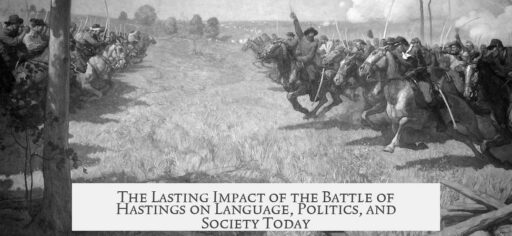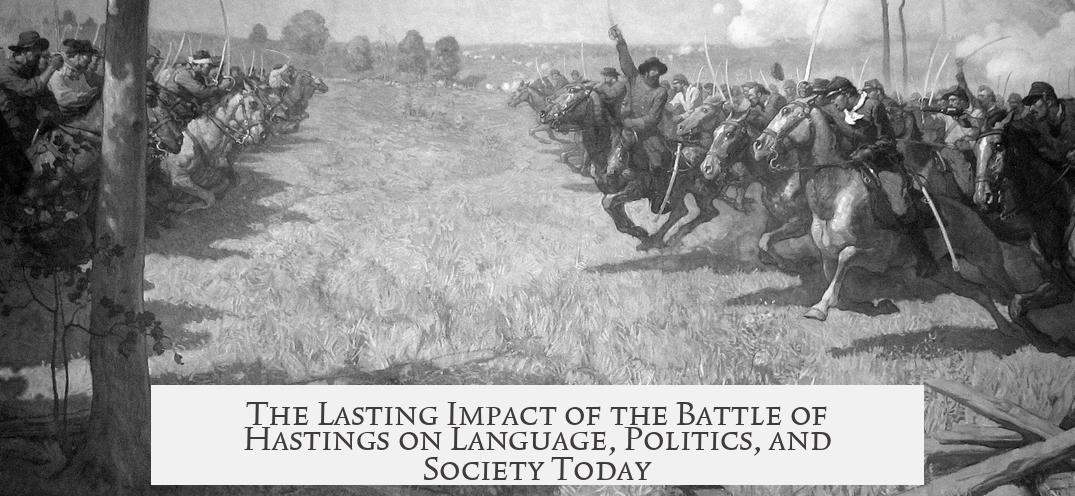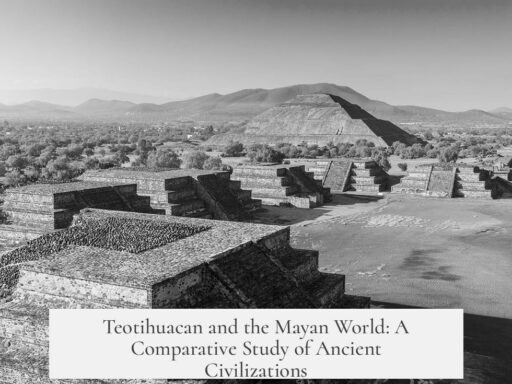The Battle of Hastings is crucial because it transformed the English language, shaped England’s political alliances, and redefined social structures. It laid the foundation of modern Britain and influenced the world today through language, governance, and cultural shifts.
The battle in 1066 marked the Norman conquest of England. When William the Conqueror, a Norman duke, defeated King Harold II, it triggered a profound transformation. The Normans spoke a form of Old French, while the Saxons spoke Old English. This linguistic fusion created the foundation for modern English. The resulting language combined Germanic roots with Romance language influences, producing its uniquely diverse vocabulary.
Norman French became the language of the ruling class and administration, while Old English remained among common people. Over centuries, these languages blended, introducing a vast number of French words into English daily use. Without the Battle of Hastings, English would have remained closer to its Germanic origins. The linguistic mixture shaped literature, law, and education in England and later, the English-speaking world.
Politically, the battle altered England’s focus from northern Europe and Scandinavia to continental alliances. Before Hastings, England maintained ties through a “North Sea Axis” with Norway and Denmark. Afterward, the balance shifted southward, fostering a “North-South Axis” aligned with France. English kings also ruled extensive lands in France, including Normandy and Aquitaine. This dual rule was crucial in later conflicts, such as the Hundred Years’ War.
This change reduced Scandinavian influence and enhanced ties with mainland Europe. It created a platform for a centralized French monarchy. Powerful French kings used the English-held principalities as leverage to strengthen their domain. The political reorientation shaped medieval diplomacy and warfare and influenced European history well beyond the Middle Ages.
| Political Impacts | Description |
|---|---|
| Shift in alliances | From Scandinavia to France |
| Dual rule | English kings ruled French lands |
| Foundation for centralized monarchy | Boosted French royal power |
Social and cultural structures also changed drastically. Hastings introduced a stricter feudal system with a tiered hierarchy. Land ownership concentrated in few hands instead of many small holders. This consolidation persists in land tenure patterns today. The conquest redefined nobility and vassalage in England, embedding new customs, laws, and social orders.
Warfare and rivalry with France became a recurring theme in English history. The battle initiated a legacy of conflicts, marriages, and treaties intertwined with French politics. The English people would face decades of warfare tied to their rulers’ continental possessions.
Symbolically, the Battle of Hastings is viewed as the moment Britain was forged. Following victory, William built the Tower of London to secure his rule and symbolize Norman power. London’s rise as the capital of the British Empire, influencing global history, traces back to this period.
The battle also marks the start of a unified English monarchy that evolved into the United Kingdom. Its effects persist in governmental systems, language, and cultural identity worldwide.
- It created modern English through Norman-Saxon language fusion.
- It shifted England’s political focus toward France and continental Europe.
- It introduced a feudal system with concentrated land ownership.
- It caused enduring Anglo-French conflicts and alliances.
- It symbolized the foundation of Britain and rise of London.
Why is the Battle of Hastings So Important? How Did It Affect the World Today?
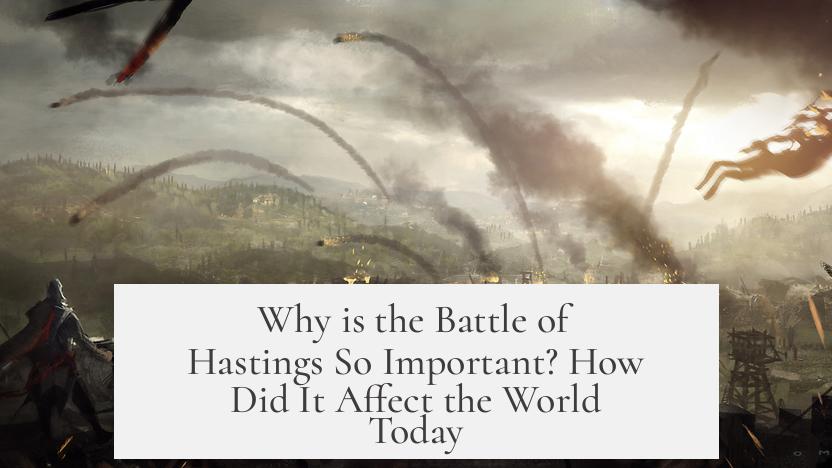
The Battle of Hastings is critically important because it changed everything—for England and far beyond. It fused Norman French and Anglo-Saxon worlds into what we now call modern England, switched the nation’s political focus, reshaped society, and put London on the map as a major capital. Sure, it was a battle in 1066, but its effects ripple through language, politics, and culture even today.
Let’s unpack why this blood-soaked clash matters so much.
Linguistic Impact: The Birth of Modern English
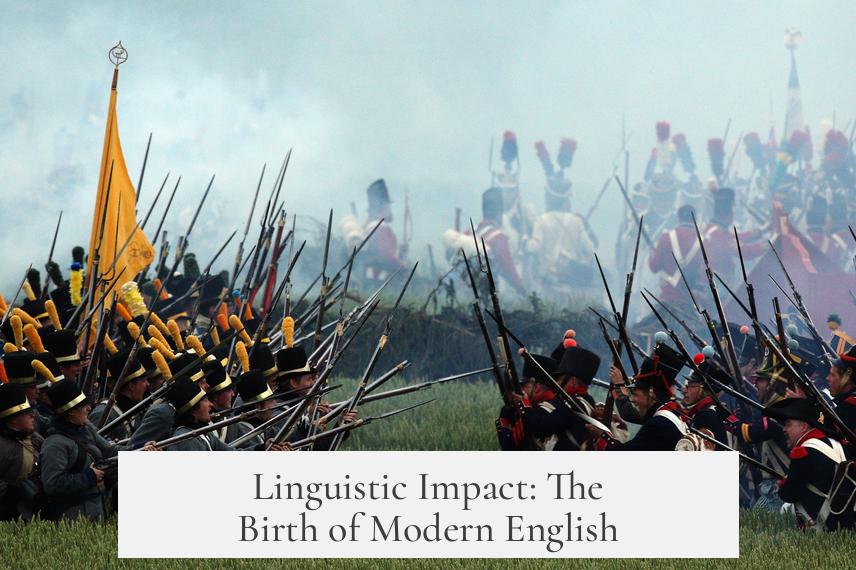
The weird and wonderful English language owes its tangled roots to Hastings. Before 1066, the Saxons spoke Old English, a Germanic language you’d barely recognize today.
When William the Conqueror and his Norman French-speaking army won, they planted a cultural bomb. Suddenly, the English elite spoke Norman French. Over centuries, this mingled with Anglo-Saxon to create a confusing but rich mash-up—English as we know it.
Think about words like government (French origin) sitting next to king (Germanic root). This mix would not exist without Hastings. If William had lost? English would be a lot closer to German—less charmingly complicated, but probably less fun too.
Political and Territorial Shifts
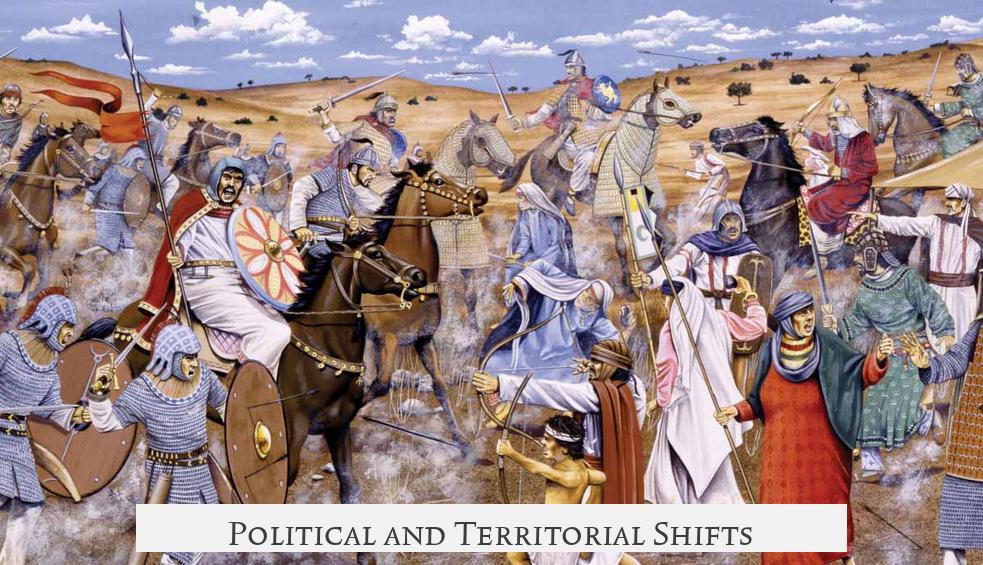
Hastings wasn’t just a language game-changer; it altered England’s political orbit. Before this, England leaned toward Scandinavia—a North Sea axis linking England, Norway, and Denmark.
Victory at Hastings pivoted England southward, aligning it closely with France. This North-South axis shaped centuries of diplomacy, war, and culture. English kings weren’t just ruling England—they now held large lands in France. This created a delicate political dance that influenced continental politics for generations.
It also gave France a chance to centralize power. The French kings, like Francis I and later Louis XIV (the Sun King), built the structures of a strong centralized state partly because of the tangled English-French landholdings forged after Hastings.
Social and Cultural Reordering
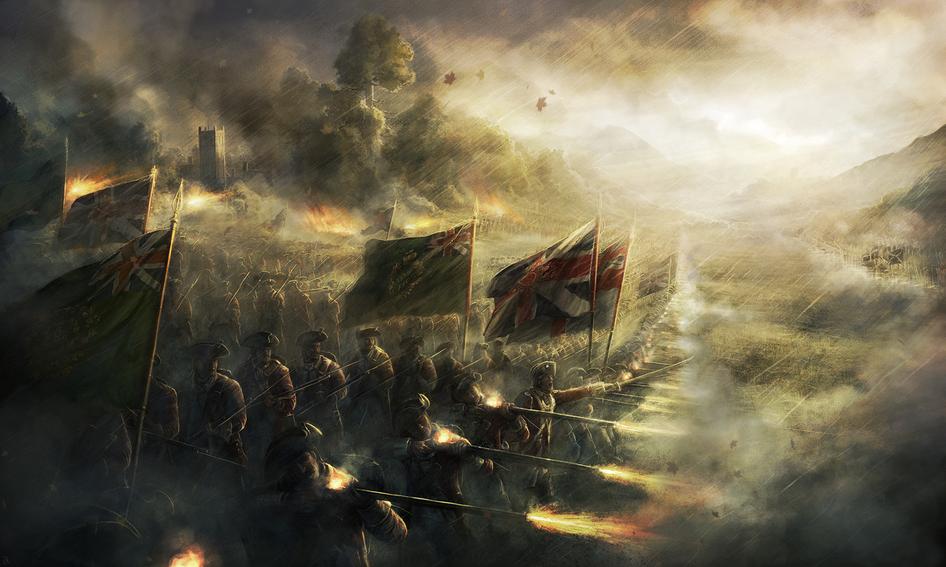
The Norman conquest brought feudalism in full force. England went from a fairly mixed landownership pattern to a sharp hierarchy where a few nobles controlled huge estates.
Imagine going from many folks owning small farms to a handful of super-rich land barons calling all the shots. This shift cemented a social order that would dominate England for centuries and influence colonial systems worldwide.
The battle also dragged England into frequent continental conflicts like the Hundred Years’ War. Marriages and treaties tied English and French destinies forever—sometimes fighting, sometimes mingling, but always entangled.
Symbolic and Lasting Historical Importance
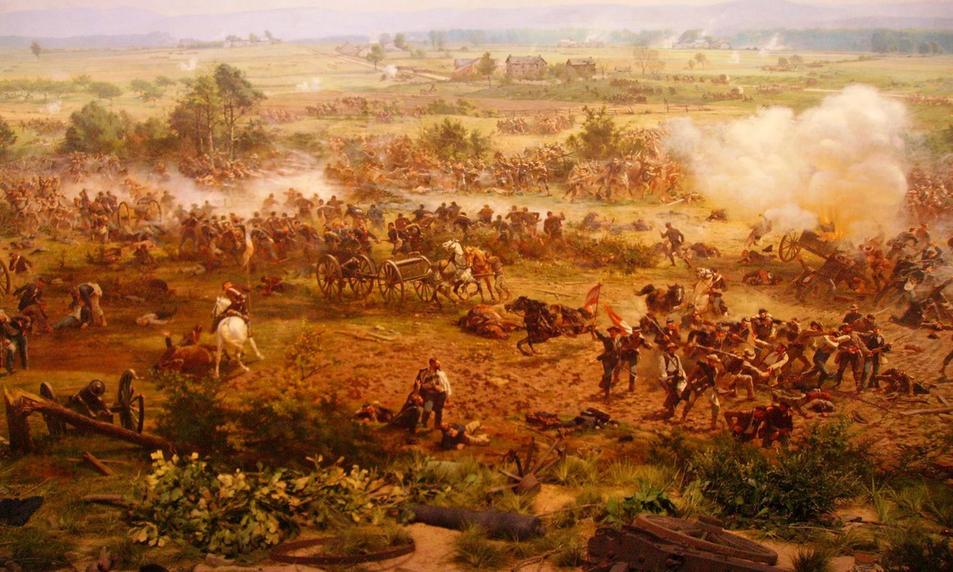
People often say Britain was “forged” at Hastings. That’s no exaggeration. This battle shaped not just borders but identities.
After the battle, William built the Tower of London on a strategic spot that would become the heart of Britain—and a capital for a quarter of the planet. Think of London as Hastings’ grand descendant, growing from muddy banks to a global powerhouse, partly thanks to William’s vision.
How Does This Affect the World Today?
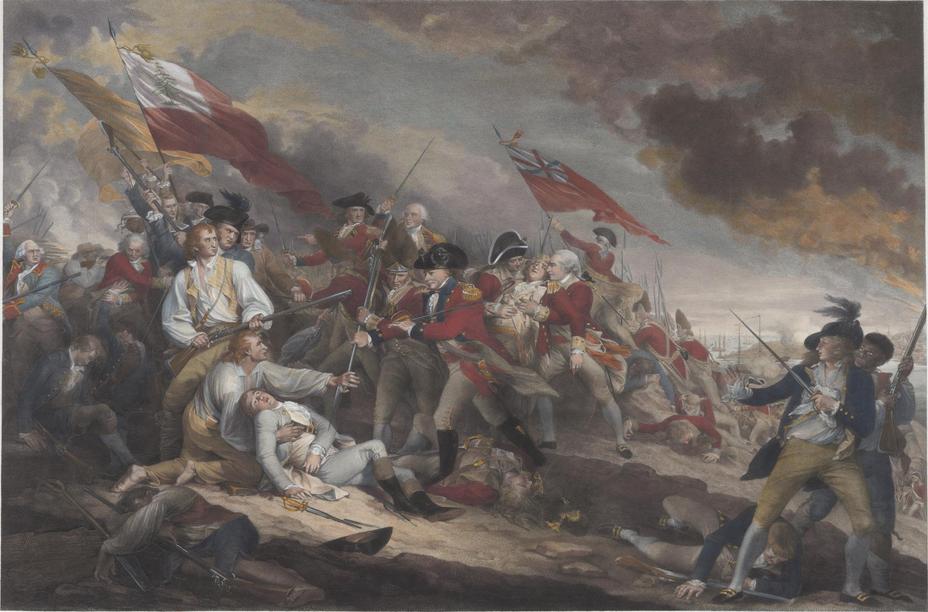
So what? You might say, it was just a medieval battle. But its legacy is written everywhere:
- Language: Modern English, with its bizarre vocabulary and quirky spelling, exists because Norman French and Anglo-Saxon mingled after Hastings.
- Politics: The Anglo-French rivalry and alliances shaped European history—wars, treaties, power shifts—all hinged on this foundational change.
- Social Structures: Feudalism’s firm grip influenced hierarchical systems worldwide, including those exported to colonies in America, Africa, and Asia.
- Cultural Fusion: The blending of Norman and Saxon cultures created a rich British culture that still influences art, law, and governance.
- Global Capitals: London’s rise as a dominant city owes its early foundation to William’s conquest efforts.
Here’s a Fun Thought:
If you speak English, thank the Battle of Hastings. Without it, your language would probably sound very different—less “Shakespeare,” more “Vikings.” Would social classes be so rigid? Would England have stayed a small island outpost, or grown into a global empire that shaped world history?
It’s wild to realize one battle reshaped so much.
Practical Takeaway for Today
Understanding Hastings reminds us how history’s dramatic moments ripple far beyond their time. Culture evolves through conflict and fusion. Language develops through conquest and collaboration. Politics hinges on power and land. Society adapts around new orders.
So, if you’re learning English or studying politics, ask: What forces shaped these systems? Hastings is an answer that goes beneath the surface.
Summary Table: Key Impacts of the Battle of Hastings
| Dimension | Impact | Long-term Result |
|---|---|---|
| Linguistic | Fusion of Norman French and Anglo-Saxon languages | Modern English: a hybrid language |
| Political | Shift from Scandinavian focus to France | New European alliances; centralized French monarchy |
| Social | Introduction of feudal hierarchies and land concentration | Stratified society; legacy of aristocratic landownership |
| Cultural | Entwining of Norman and Anglo-Saxon customs | British culture’s rich dual heritage |
| Historical/Symbolic | Formation of Britain’s identity and London’s rise | Foundation of a major world power with global influence |
In conclusion, the Battle of Hastings is not just about medieval knights clashing on a hill; it’s about how England—and by extension the modern world—was shaped in language, power, and culture. Next time you speak English or walk London’s streets, remember Hastings. This historic day is the foundation stone of much of what makes the English-speaking world what it is today.
What role did the Battle of Hastings play in shaping the English language?
The Battle of Hastings led to a fusion of Norman French with Old English. This mix created the foundation for modern English, combining Germanic and Romance elements that influence the language today.
How did the battle shift England’s political alliances?
Before Hastings, England aligned with Scandinavia. The Norman victory redirected England’s focus south to France, changing political partnerships and setting the stage for future Anglo-French conflicts.
In what way did the Battle of Hastings change land ownership in England?
The Normans introduced a feudal system. Large estates replaced many small landholdings, concentrating power among fewer nobles and reshaping English society’s structure.
Why is the Battle of Hastings considered a foundational event for Britain?
It united different cultures and established Britain’s early identity. William’s reign marked the start of centralized rule and helped London rise as a major political and economic center.
How did the outcome of Hastings influence European power dynamics?
The battle helped centralize power in France and changed English involvement in continental affairs. It laid groundwork for the rise of strong French monarchy and long-term strife between England and France.
